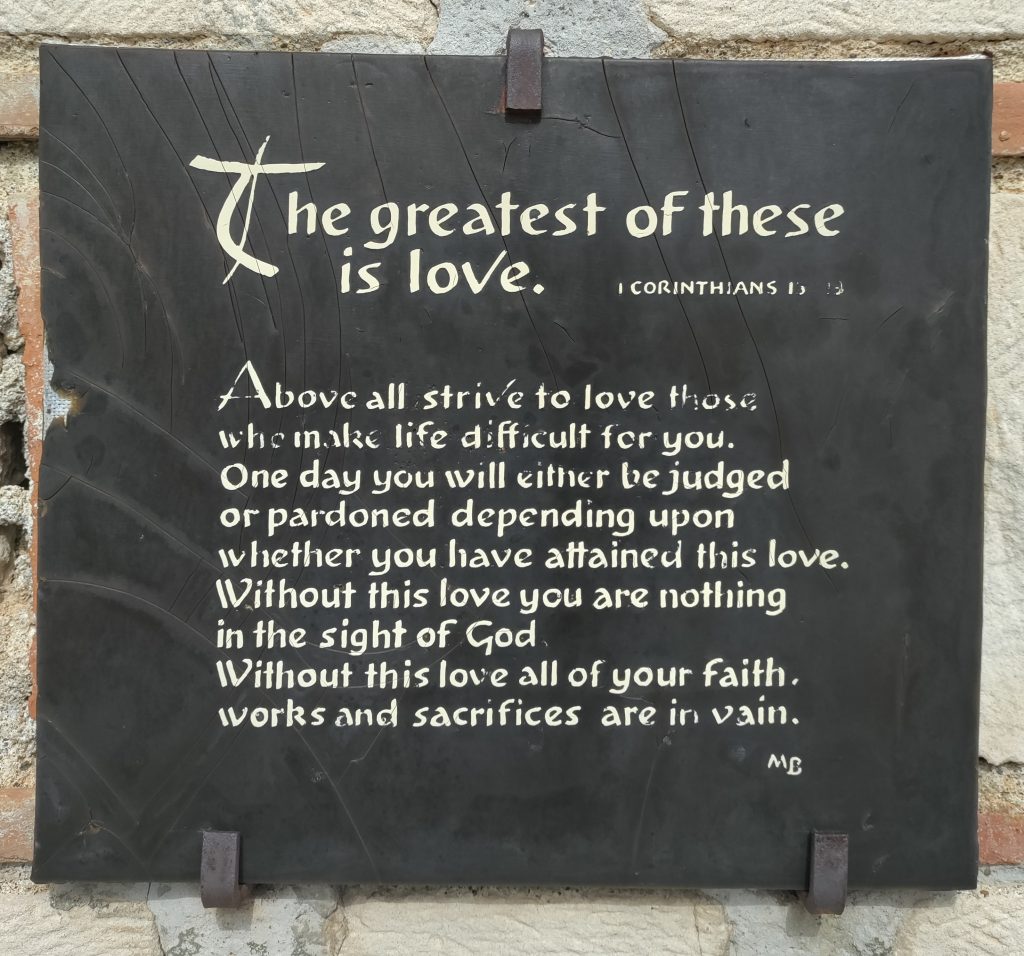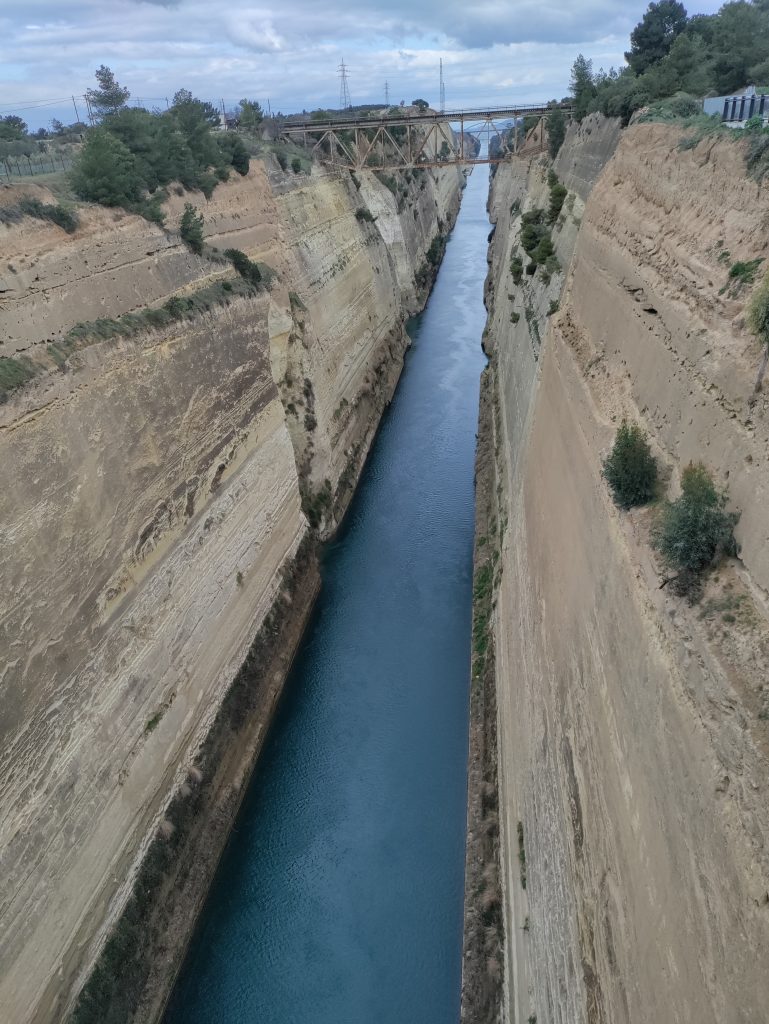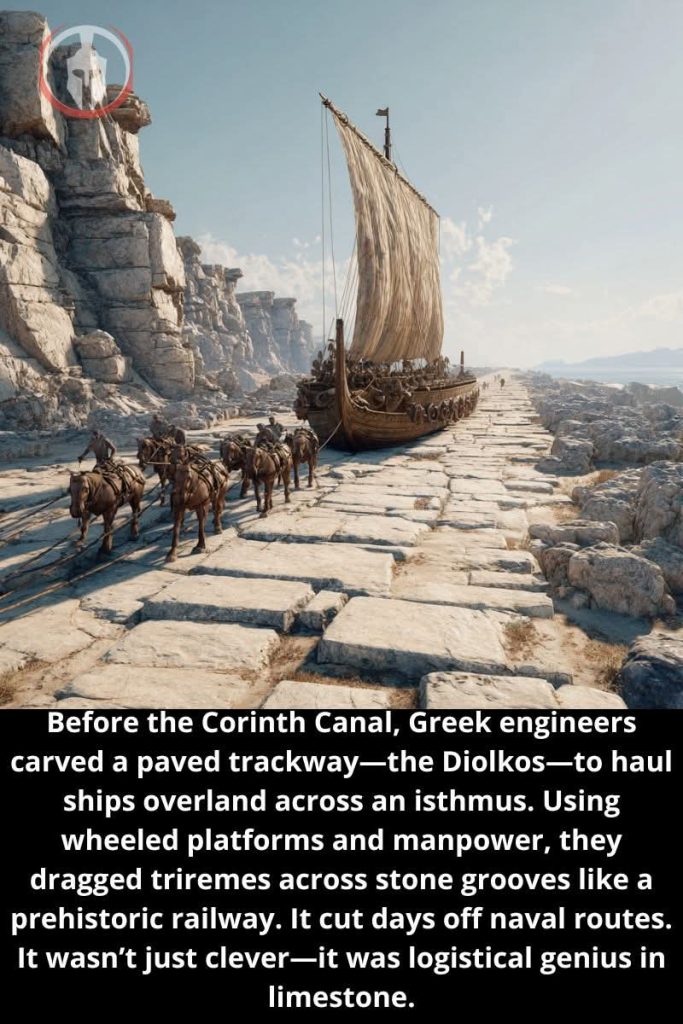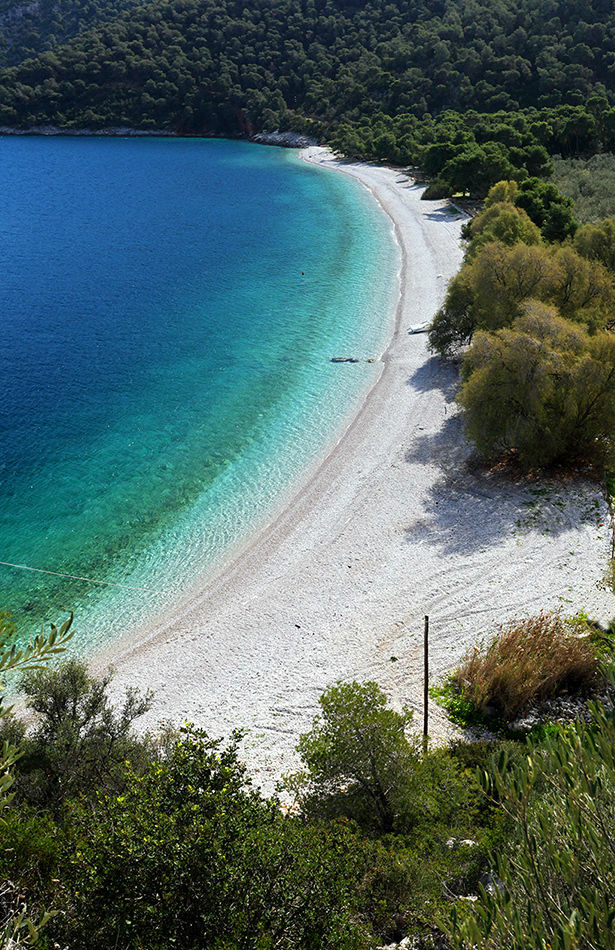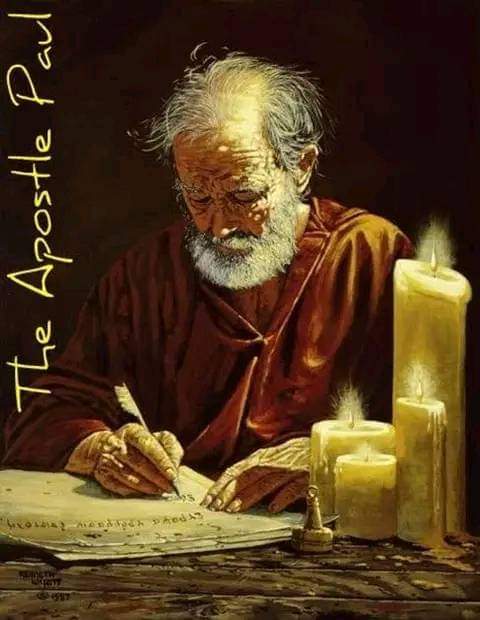Let us take you on a spiritual journey to tour the places the Apostle Paul preached in ancient Athens to Corinth walking in the footsteps of the “Apostle to the gentiles”.
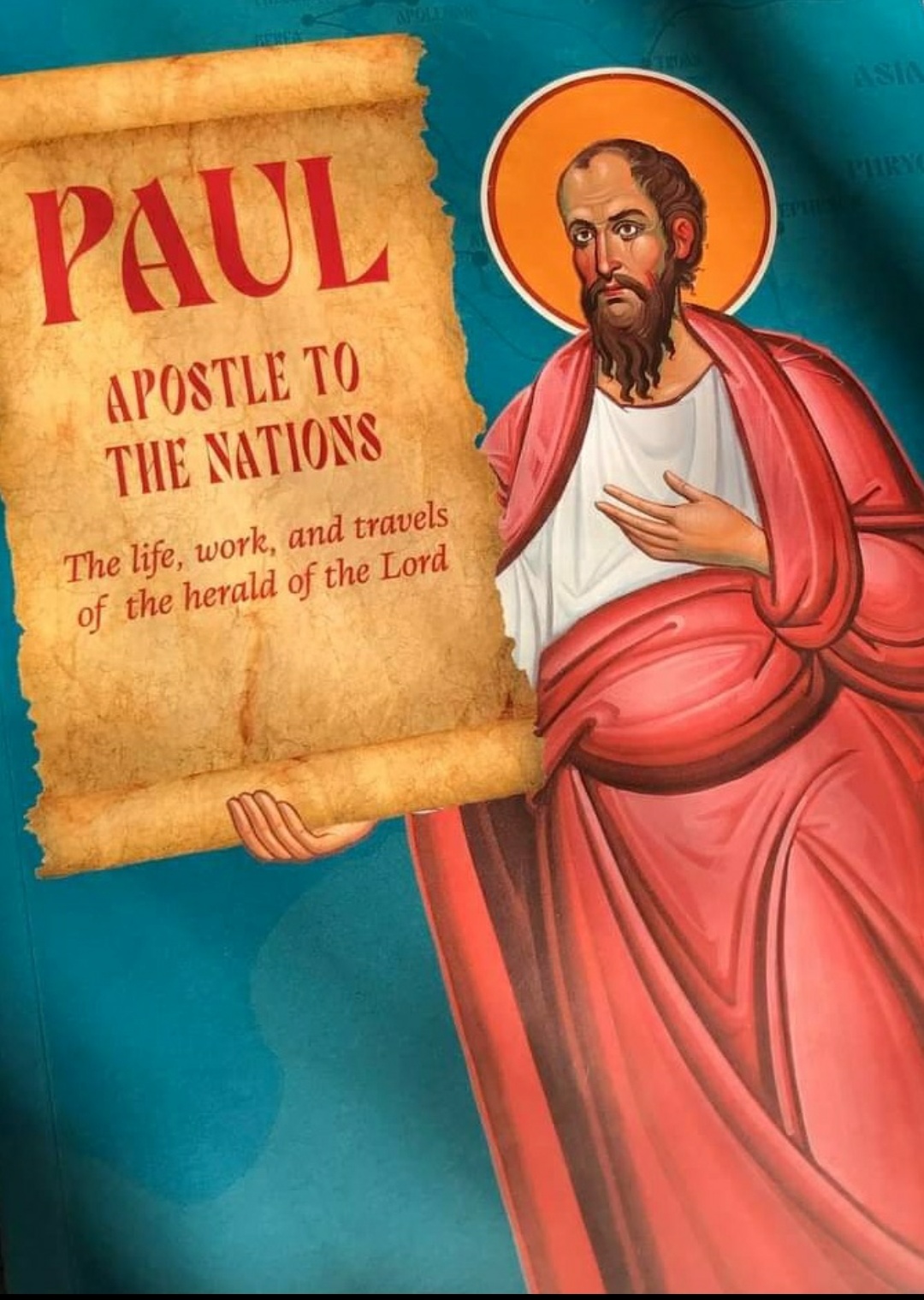
“Charity is patient and is kind; Charity doesn’t envy. Charity doesn’t brag, is not proud, doesn’t behave itself inappropriately, doesn’t seek its own way, is not provoked, takes no account of evil; doesn’t rejoice in unrighteousness, but rejoices with the truth; it hears all things, believes all things, hopes all things, endures all things. Love never fails”.
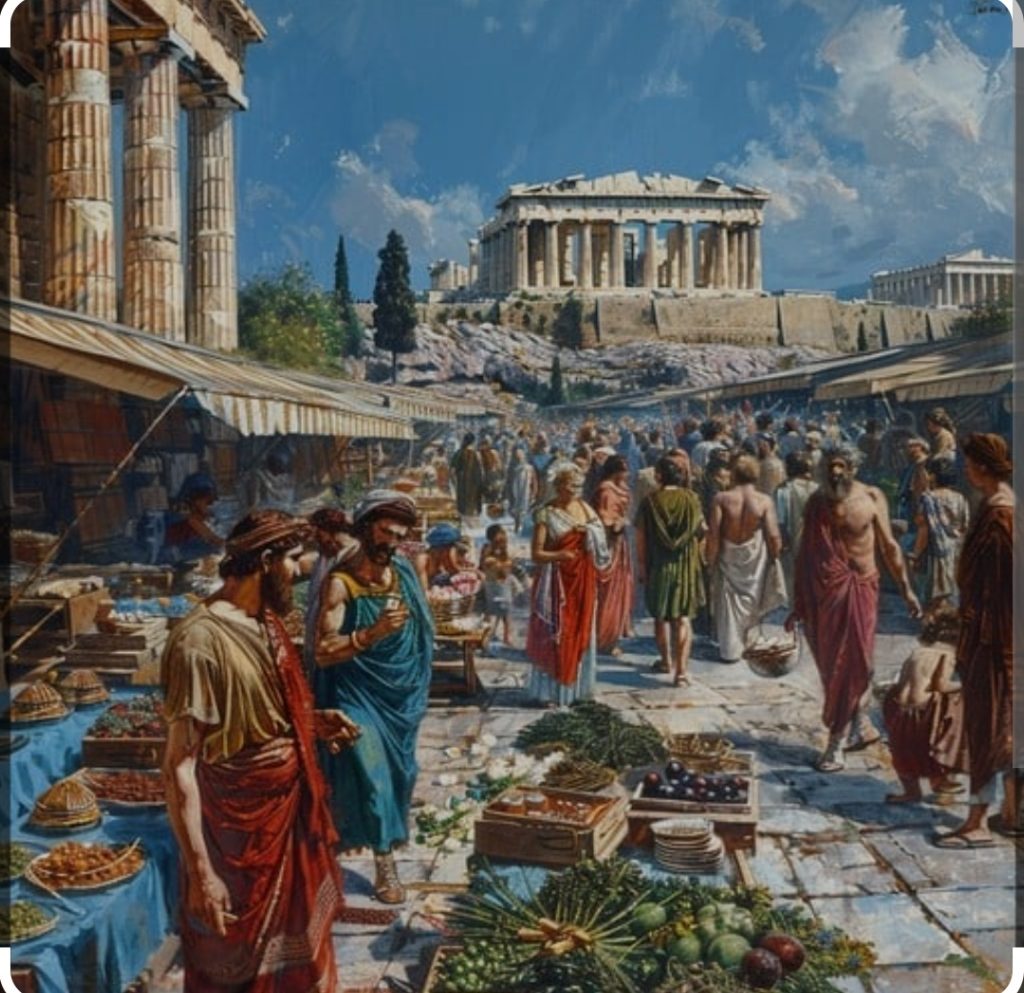
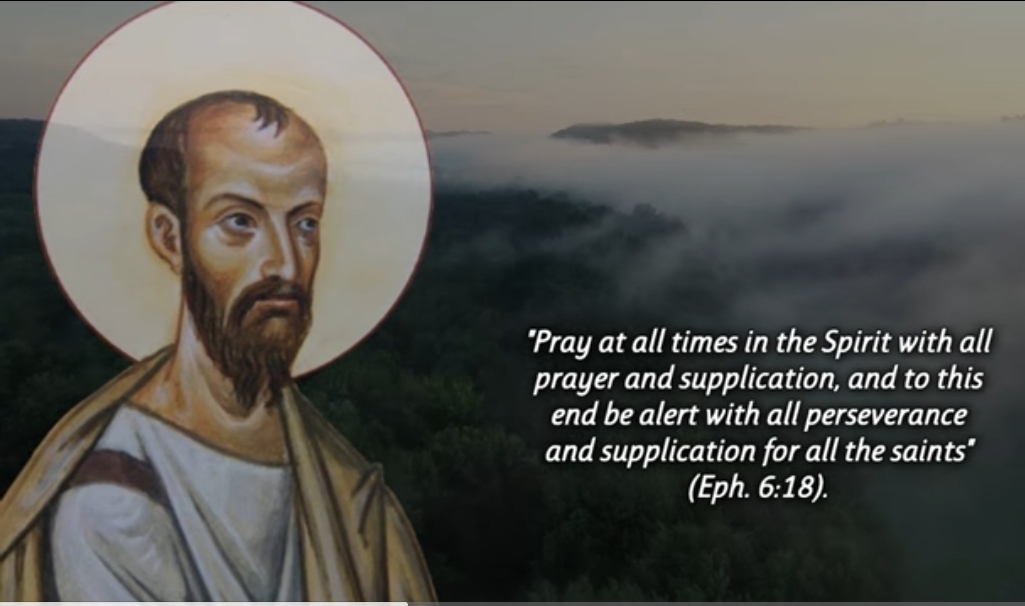
We’ll take you to follow in the footsteps of the great Apostle Paul from ancient Athens to Corinth on a spiritual journey you’ll never forget.
We’ll visit the Athens Areopagus of the Acropolis where Paul preached, then stroll through the “Hellenic Agora” below to see where the “Altar to the unknown God” would have been, before we drive to ancient Corinth to see the Isthmus canal. Then to the Christian Cathedral in Corinth dedicated to the Appstle Paul believed to be also a place from where Paul preached. Then we’ll visit the Isthmus games museum before we drive to ancient Kenchrea to see where the ancient baptistry was where Paul baptised new Christians next to the synaguge where he lived for a time. Then finally we’ll visit the ruins of the ancient city of Corinth before going up to explore the Corinth Acropolis.
Come have the tour of a lifetime with us in native English by the best GreekAmerican guides!
Saint Paul the Apostle made two missionary journeys to Greece bringing Christianity to its people; from there it spread quickly to all the other western European countries of the time. The Apostle Paul traveled to Greece for the first time on his second missionary tour, coming from Troy in Asia Minor…
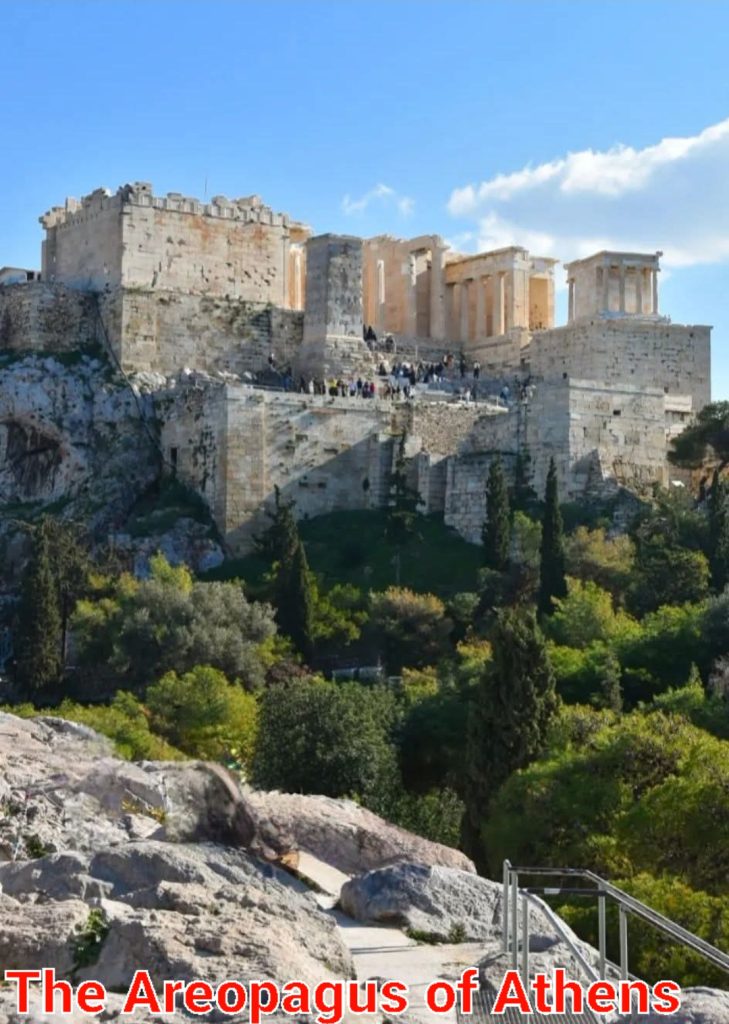
…”Therefore alot of them believed in Jesus; many honourable women which were Greek jews, and also many of their men. 13 But when the Jews of Thessalonica learned that the Word of God was preached of Paul at Berea, they went there and stirred up the people. 14 And then immediately the brethren sent Paul away to leave by boat, but Silas and Timotheus stayed there. 15 And they that traveled with Paul brought him to Athens, and sent a commandment to Silas and Timotheos to come to Paul quickly. 16 Now while Paul waited for them in Athens, his breath was stirred up within him, when he saw the city wholly given to idolatry. (Acts 17:12-16)


1 Corinthians 2:9 But as it is written, Eye hath not seen, nor ear heard, neither have entered into the heart of man, the things which God hath prepared for them that love God.
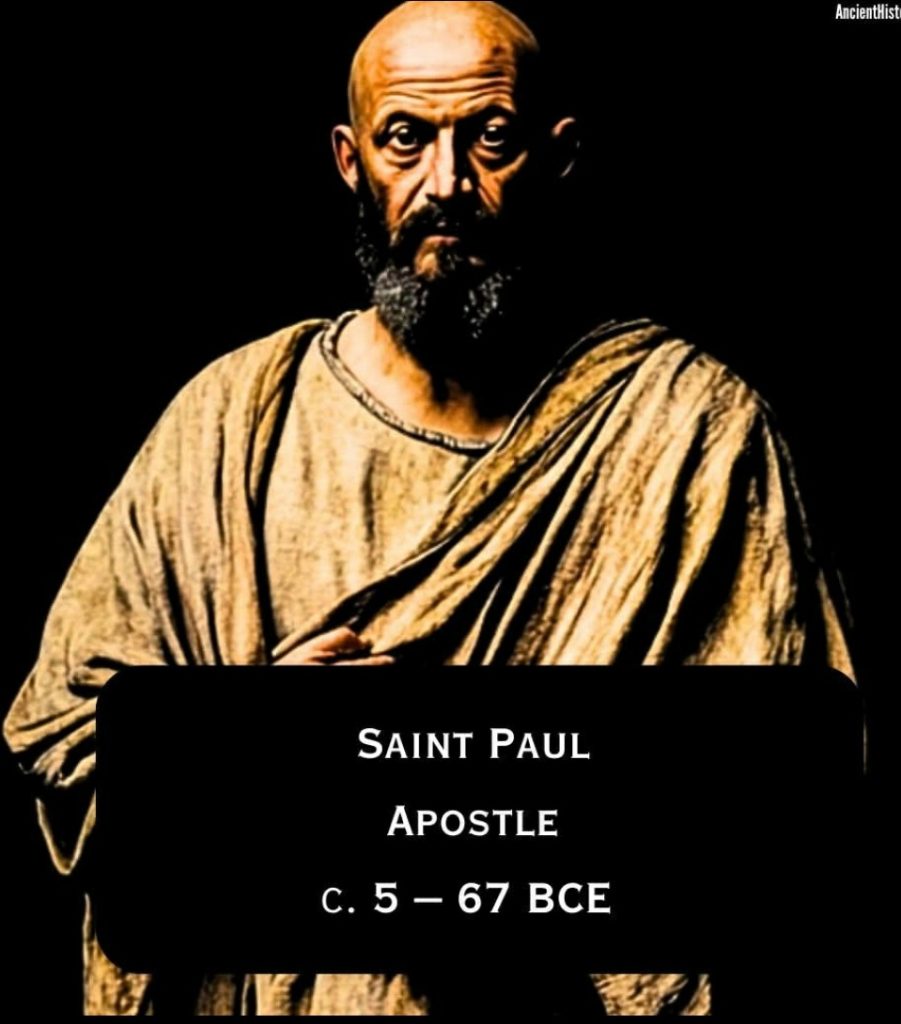
17 Therefore Paul disputed in the synagogue with the Jews, and with the devout persons, and in the market daily with them that met with him. 18 Then certain philosophers of the Epicureans, and of the Stoics, encountered Paul. And some said, What will this babbler say? Others said, He seems to be a preacher of new gods, because he preached unto them Jesus Chrtist, and the resurrection. 19 And they took Paul, and brought him unto Areopagus at the Acropolis of Athens, saying, may we know what this new doctrine is, you’re preaching about? 20 For you brought certain strange things to our ears, we would know therefore what these things mean. 21. For all the Athenians and strangers which were there spent their time in nothing else, but either to tell, or to hear some new thing. 22 Then Paul stood in the midst of Mars’ hill, and said, You men of Athens, I perceive that in all things you are very superstitious. 23 For as I passed by, and beheld your devotions, I found an altar with this inscription, “TO THE UNKNOWN GOD”. Whom therefore you ignorantly worship, Him declare I unto you. 24 God that made the world and all things therein, seeing that He is Lord of heaven and earth, dwells not in temples made with hands; 25 Neither is worshipped with men’s hands, as though He needs any thing, seeing He gives to all life, and breath, and all things. (Acts 17:17-25)
26 And has made from one blood all nations of men for to dwell on all the face of the earth, and has determined the times before appointed, and the bounds of their habitation; 27 That they should seek the Lord, if they might search out after Him, and find Him, though He be not far from every one of us. 28 For in Him we live, and move, and have our being; as certain also of your own poets have said, For we are also His offspring. 29 Forasmuch then as we are the offspring of God, we ought not to think that the Godhead is like gold, or silver, or stone, carved by art and man’s inventions. 30 And the times of that ignorance God looked away from; but now commands all men every where to repent. 31 Because He has appointed a day, in the which He will judge the world in righteousness by that man whom He has ordained; whereof He has given assurance unto all men, in that He has raised Him from the dead. (Acts 17:26-31)
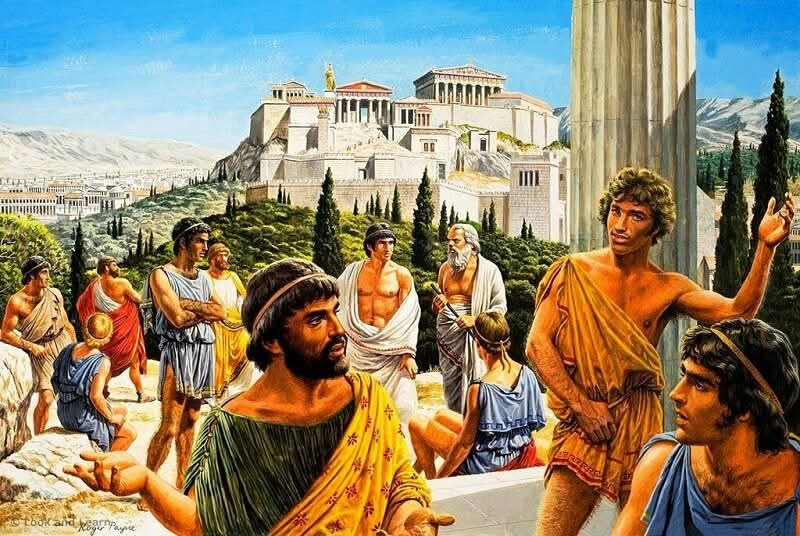
32. And when they heard of the resurrection of the dead, some mocked, and others said, We will you hear again about this matter. 33 So Paul departed from them. 34 Although certain men joined unto him, and believed, among the which was Dionysius the Areopagite, and a woman named Damaris, and others with them. (Acts 17:32-34)
1 Corinthians 16:22 If any man loves not the Lord Jesus Christ, let him be rejected…
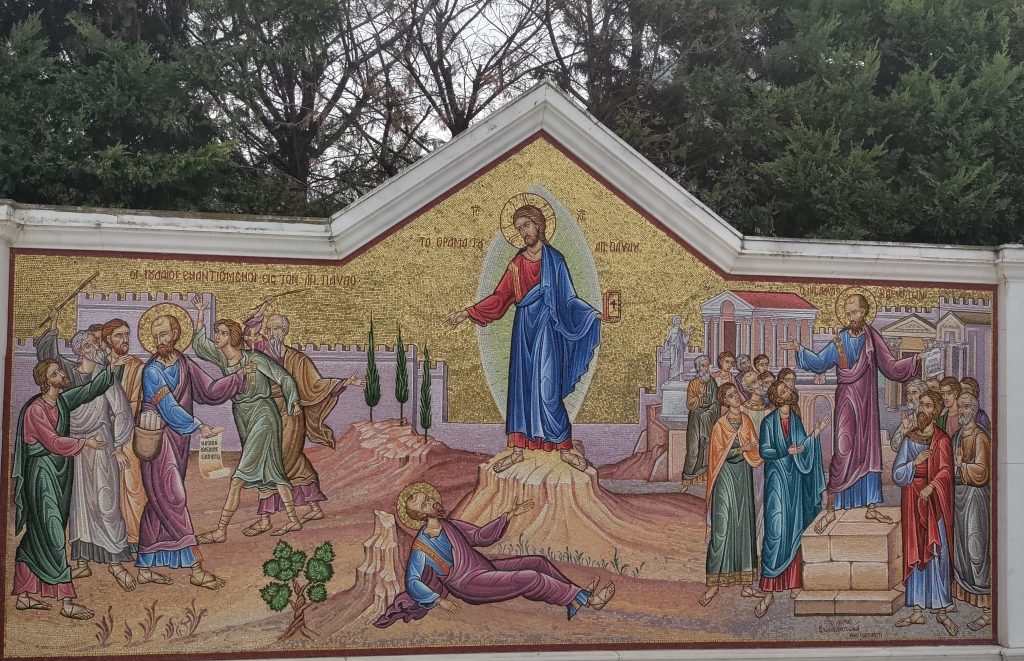
After these things Paul departed from Athens, and went to Corinth; 2. And found a certain Jew named Aquila, born in Pontus, lately come from Italy, with his wife Priscilla; because back then Claudius had commanded all the Jews to leave Rome, and came unto them. 3 And because he was of the same craft, he abode with them, and wrought, for by their occupation they were tentmakers. 4 And Paul reasoned in the synagogue every Saturday, and persuaded the Jews and the Greeks. 5 And when Silas and Timotheos were come from Macedonia, Paul was “within the breath”, and testified to the Jews that Jesus is “The Christ”. (Acts 18:1-5)
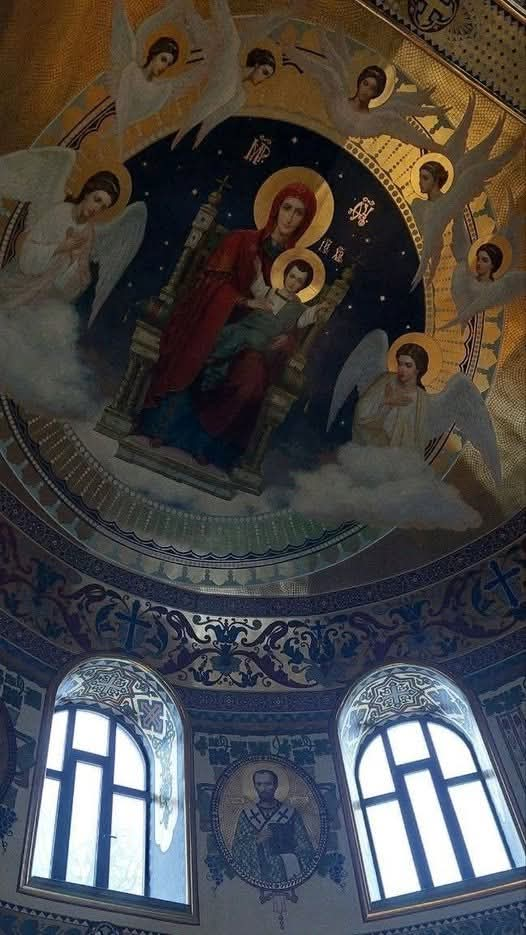
2 Corinthians 7:1 Having therefore these promises, dearly beloved, let us cleanse ourselves from all filthiness of the flesh and breath, perfecting holiness in the fear of God…
6 And when they opposed and blasphemed, Paul shook his raiment, and said unto them, Your blood be upon your own heads; I am clean; from henceforth I will go unto the Gentiles. 7 And he departed from there, and entered into a certain man’s house, named Justus, one that worshipped God, whose house was joined next to the synagogue. 8 And Crispus, the chief ruler of the synagogue, believed on the Lord Jesus with all his house; and many of the Corinthians hearing believed, and were baptized.
9 Then spoke the Lord to Paul at night by a vision saying,” Be not afraid, but speak, and hold not your peace, 10 For I am with you, and no man shall hurt you for I have many people in this city. 11 And Paul continued there a year and six months, teaching the word of God among them. 12 And when Gallio was the deputy of Achaia, the Jews made insurrection with one accord against Paul, and brought him to the judgment seat, 13 Saying, This fellow persuades men to worship God contrary to the law.
“Paul, called to be an apostle of Jesus Christ through the will of God, and Sosthenes our brother, [2]Unto the church of God which is at Corinth, to them that are sanctified in Christ Jesus, called to be Saints, with all that in every place call upon the name of Jesus Christ our Lord, both theirs and ours:[3]Grace be unto you, and peace, from God our Father, and from the Lord Jesus Christ. [4]I thank my God always on your behalf, for the grace of God which is given you by Jesus Christ. [5]That in every thing ye are enriched by him, in all utterance, and in all knowledge;[6]Even as the testimony of Christ was confirmed in you.[7]So that ye come behind in no gift; waiting for the coming of our Lord Jesus Christ:[8]Who shall also confirm you unto the end, that ye may be blameless in the day of our Lord Jesus Christ.[9]God is faithful, by whom ye were called unto the fellowship of his Son Jesus Christ our Lord.[10]Now I beseech you, brethren, by the name of our Lord Jesus Christ, that ye all speak the same thing, and that there be no divisions among you; but that ye be perfectly joined together in the same mind and in the same judgment.[11]For it hath been declared unto me of you, my brethren, by them which are of the house of Chloe, that there are contentions among you. [12]Now this I say, that every one of you saith, I am of Paul; and I of Apollos; and I of Cephas; and I of Christ.[13] Is Christ divided? Was Paul crucified for you, or were you baptized in the name of Paul? [14] I thank God that I baptized none of you, but Crispus and Gaius;[15]Lest any should say that I had baptized in mine own name.[16]And I baptized also the household of Stephanas: besides, I know not whether I baptized any other.[17]For Christ sent me not to baptize, but to preach the gospel: not with wisdom of words, lest the cross of Jesus Christ should be made of none effect.[18]For the preaching of the cross is to them that perish foolishness; but unto us which are saved it is the power of God.[19]For it is written, I will destroy the wisdom of the wise, and will bring to nothing the understanding of the prudent.[20]Where is the wise? where is the scribe? where is the disputer of this world? hath not God made foolish the wisdom of this world?[21]For after that in the wisdom of God the world by wisdom knew not God, it pleased God by the foolishness of preaching to save them that believe.[22]For the Jews require a sign, and the Greeks seek after wisdom:[23]But we preach Christ crucified, unto the Jews a stumblingblock, and unto the Greeks foolishness;[24]But unto them which are called, both Jews and Greeks, Christ the power of God, and the wisdom of God.[25]Because the foolishness of God is wiser than men; and the weakness of God is stronger than men.[26]For you see your calling, brethren, how that not many wise men after the flesh, not many mighty, not many noble, are called:[27]But God hath chosen the foolish things of the world to confound the wise; and God hath chosen the weak things of the world to confound the things which are mighty;[28]and base things of the world, and things which are despised, hath God chosen, yes, and things which are not, to bring to nought things that are.[29]That no flesh should glory in His presence.[30]But of Him are you in Christ Jesus, who of God is made unto us wisdom, and righteousness, and sanctification, and redemption:[31]That, according as it is written, He that glories, let him glory in the Lord”. (1Corinthians 1)
14 And when Paul was now about to open his mouth, Gallio said unto the Jews, If it were a matter of wrong or wicked lewdness, you Jews, would be a reason that I should put up with you. 15 But if it be a question of words and names, and of your law, look to it yourselves; for I will be no judge of such matters. 16 And he drove them from the judgment seat. 17 Then all the Greeks took Sosthenes, the chief ruler of the synagogue, and beat him before the judgment seat. And Gallio didn’t care about any of those things. 18 And Paul after this tarried there yet a good while, and then took his leave from the brotherhood, and sailed to Syria, and with him Priscilla and Aquila; having shaved his head in Kenchrea, for he made a vow. 19 And he came to Ephesus, and left them there, but he himself entered into the synagogue, and reasoned with the Jews.
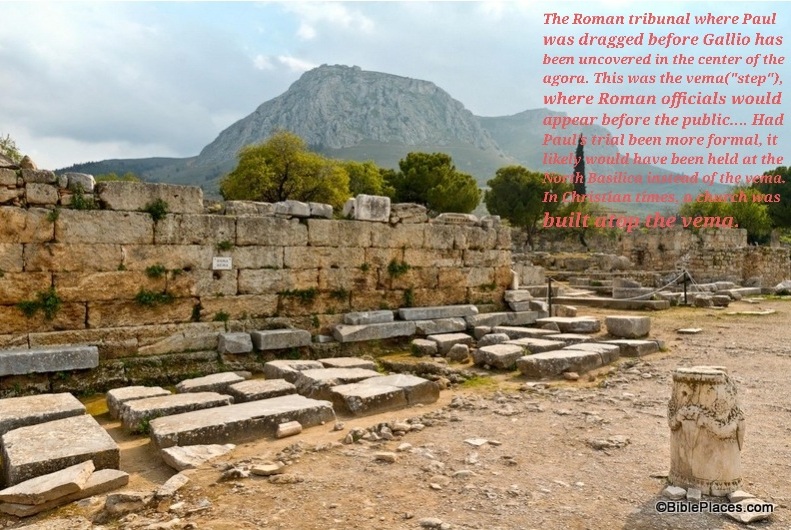
20 When they desired him to stay a longer time with them, he consented not; 21 But bode them farewell, saying, I must by all means keep this feast that is coming in Jerusalem, but I will return again unto you, if God wills it. And Paul sailed from Ephesus. 22 And when he had landed at Caesarea, and went up, and saluted the church, then he went down to Antioch. 23 And after he had spent some time there, he departed, and went over all the country of Galatia and Phrygia in order to strengthening all the disciples. 24 And a certain Jew named Apollos, born in Alexandria Egypt, an eloquent man, and mighty in the scriptures, came to Ephesus. 25 This man was instructed in the way of the Lord; and being fervent and confident in his breath, he spoke and taught diligently the things of the Lord, knowing only the baptism of John the baptist. 26 And he began to speak boldly in the synagogue whom when Aquila and Priscilla had heard, they brought him to them, and expounded unto him the way of God more perfectly. 27 And when he was disposed to pass into Achaia, the brethren wrote, exhorting the disciples to receive him, who, when he went helped them much which had believed through grace. 28 For he vigorously convinced the Jews publicly showing by the scriptures that Jesus is the Messiah. (Acts 18: 6-28)
In the Apostle Paul’s time, Corinth was an important city in ancient Greece and it played a major role in his missionary work. Corinth was partially destroyed by the Romans in 146 BC, but in 44 BC it was rebuilt as a Roman city under Julius Caesar. It was devoted to business and pleasure, and was mostly populated by freedmen and Jews. Corinth had developed into a major government and commerce center of that region. Corinth was a commercial city, and derived its principal importance, its wealth, and its characteristics, from trade. At its peak, the city was known not only for its riches but also for its paintings and unique architecture. Building columns created in the Corinthian style were some of the most ornate in the ancient world.
Along the “agora” or marketplace of the Corinth, Paul, Priscilla and Aquila worked as tentmakers. The tents were most likely important because the city of Corinth hosted something similar to our Olympic games during that time, called the Isthmian games. The sale of the tents created the finance Paul needed for his ministry. These Isthmian games brought thousands of guests to the city for musical, physical, oratorical and intellectual competitions. It was due to these crowds that afforded Paul the occasions to speak and teach in the agora, the synagogue and finally the place of the (Vema)”step podium” where the preconsul dismissed the charges against Paul.
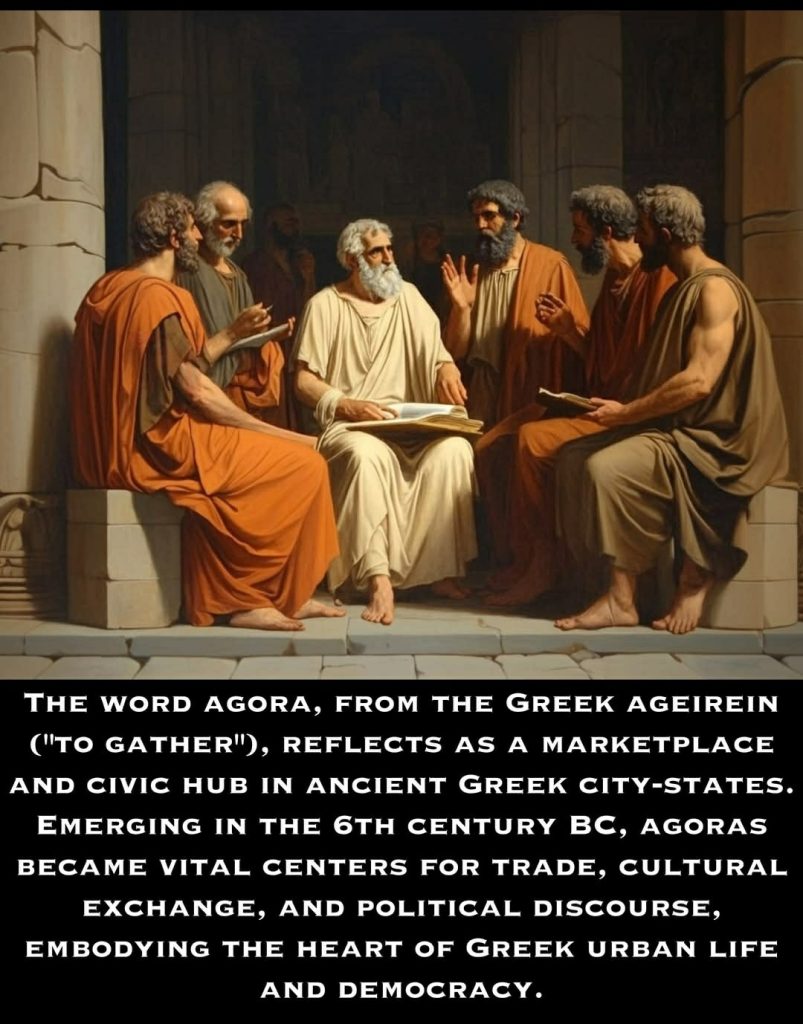
“Isthmus” is a narrow piece of land that connects Central Greece with the Peloponnese, it has been, since antiquity, a major issue for the inhabitants of Corinth, since it separated the Saronic Gulf from the Corinthian Gulf, and consequently the Aegean from the Ionian Sea, and made the transition from one sea to another dangerous, tedious and time consuming. The Corinth Canal which connects the Saronic Gulf with the Corinthian Gulf, at the site of the Isthmus village is located 5 miles southwest of Corinth. You can visit the Archaic temple of Apollo, the Pyrenean fountain with its six openings that look like caves. The Glafki fountain, carved into a rock, is also interesting. You will also see the conservatory, Acrokorinthos, and the castle of Corinth.
The Akrokorinthos, or Akropolis of Corinthos, is the imposing fortress towering above Ancient Corinth, it holds significance in the footsteps of St. Paul. As visitors ascend its ancient walls, they follow the path believed to have been traveled by the Apostle. Rising 1800 feet above the plains, Acrocorinth was once the seat of the Temple of Aphrodite, the Greek goddess of lust, whose worship contributed to the sexual immorality that Corinth was infamously known for.
“Act Like a Corinthian”: Corinth was known for its vices. Immorality and sexual sins were rampant, due in part to the pagan temple dedicated to the goddess Venus (i.e. lust). The temple’s illicit services employed more than a thousand temple prostitutes daily. There was so much sexual immorality in Corinth that the city literally became synonymous with sexual immorality: the Greek verb “Korinthiazomai”. Literally translated “to act the Corinthian”. It appears from reading 1 Corinthians that the church there was negatively affect by the environment. Immorality and immodesty found their way into the church. The members were taking their grievances to courts, rather than working them out with one another. There were a host of other problems, such as issues around marriage, meats scarified to idols, women praying with their heads uncovered, and money collected for the church in Jerusalem.
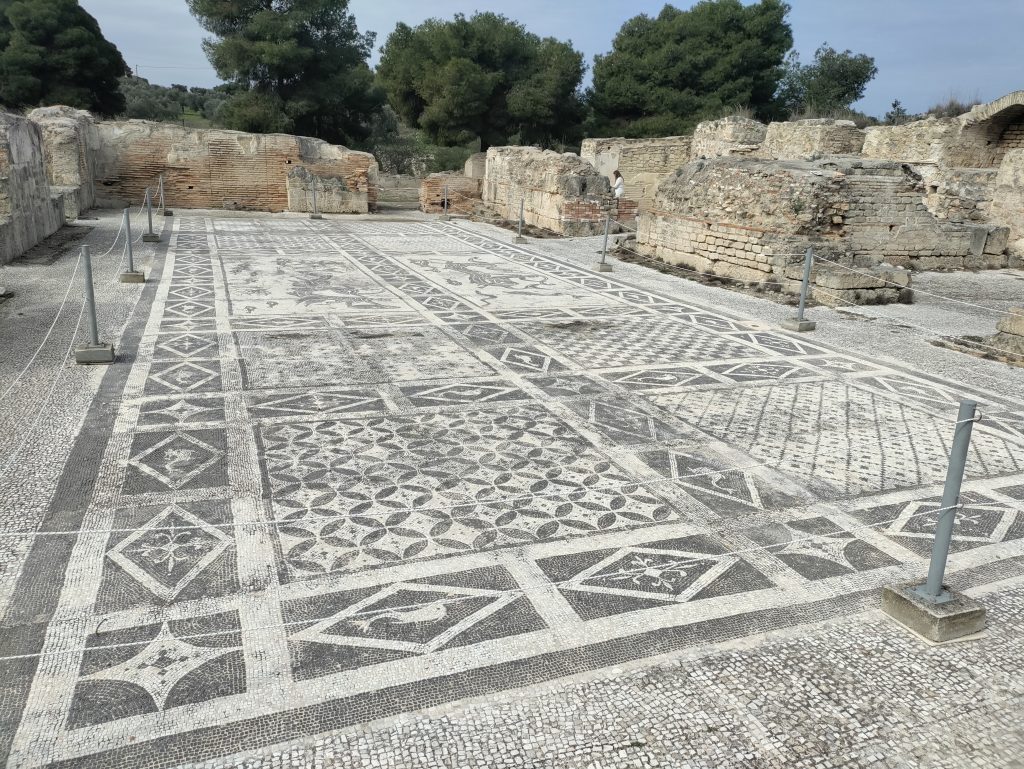
Saint Paul had spent 18 months in the city of Corinth. At that time, the Jews were able to convince the then pro-consul, Gallio, to charge him with various crimes that they deemed to be criminal. The place of the important “step” exists today, this site is a platform where Paul was made to stand and where the charges were brought against him. Gallio saw through the charges and found that it was a dispute the Jews had of Jewish law and were not of a criminal nature. The ruler of the synagogue at that time was Sosthenes who was later beaten. Sosthenes in 1 Corinthians 1:1 is called Paul’s friend.
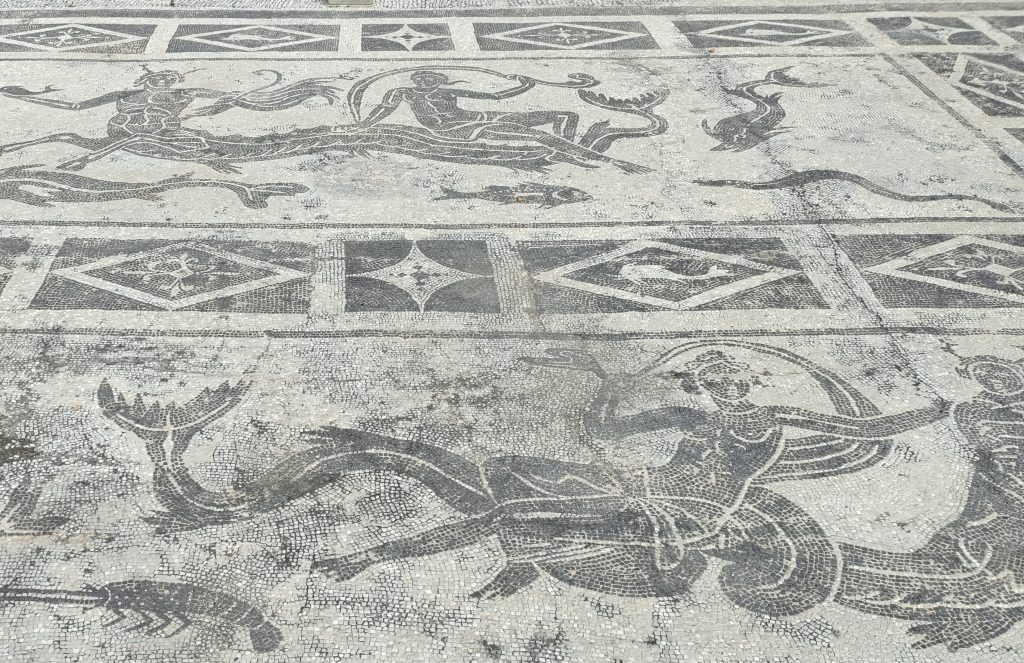
1 Corinthians 8:3 But if any man love God, the same is known by God..
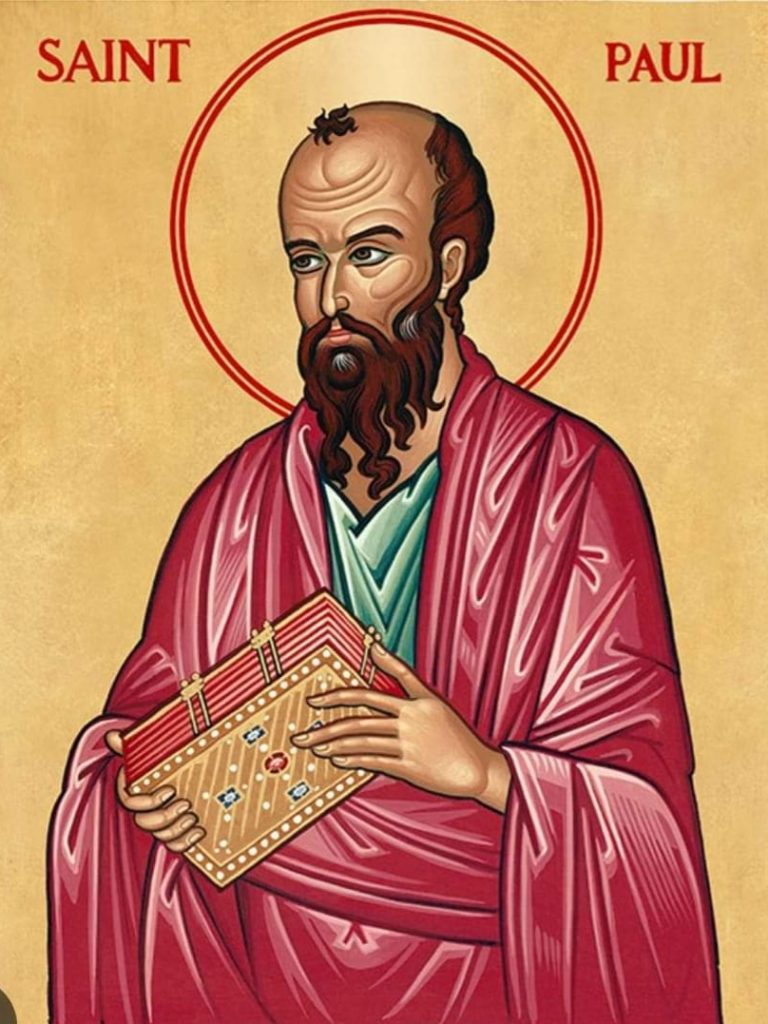
Saint Paul had many friends in Corinth and one of his friend’s name in Romans 16:23 was “Erastus” the chamberlain of the city. What’s interesting about Erastus is that his existence seems to be confirmed by an inscription found east of the theater in Corinth.’ Erastus seems to have been a man of wealth and position and as a friend of Paul’s, contributed to the improvement and infrastructure of the city. The synagogue of Corinth was a hub of public debate when Paul came to the city. Acts 18:4 says “Every Sabbath he would argue in the Synagogue and would try to convince the Jews and Greeks”. It was because of Paul’s relentless preaching that the Corinthian Jews hatched their plot to put Paul on trial before the Roman Pro-consul Gallio.
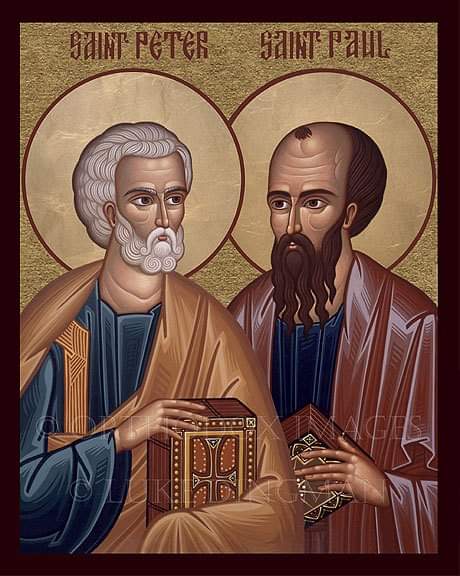
At the end of his life, the Apostle Paul, falsely accused; arrived in Rome to undergo judgment where he was beheaded between 65 and 67 A.D. His body was buried two miles away from the place of his martyrdom, in the sepulchral area along the Ostiense Way, owned by a devout Christian woman then named Lucina.
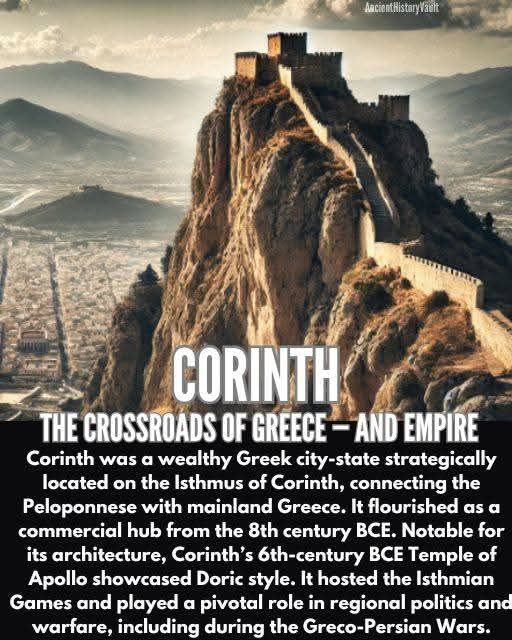
The term Apostle is derived from Classical Greek “Apóstolos”, meaning “one who is sent”. The literal meaning in English is therefore “missionary”.
2 Corinthians 13:11 Finally, brethren, farewell. Be perfect, be of good comfort, be of one mind, live in peace; and the God of love and peace shall be with you..
